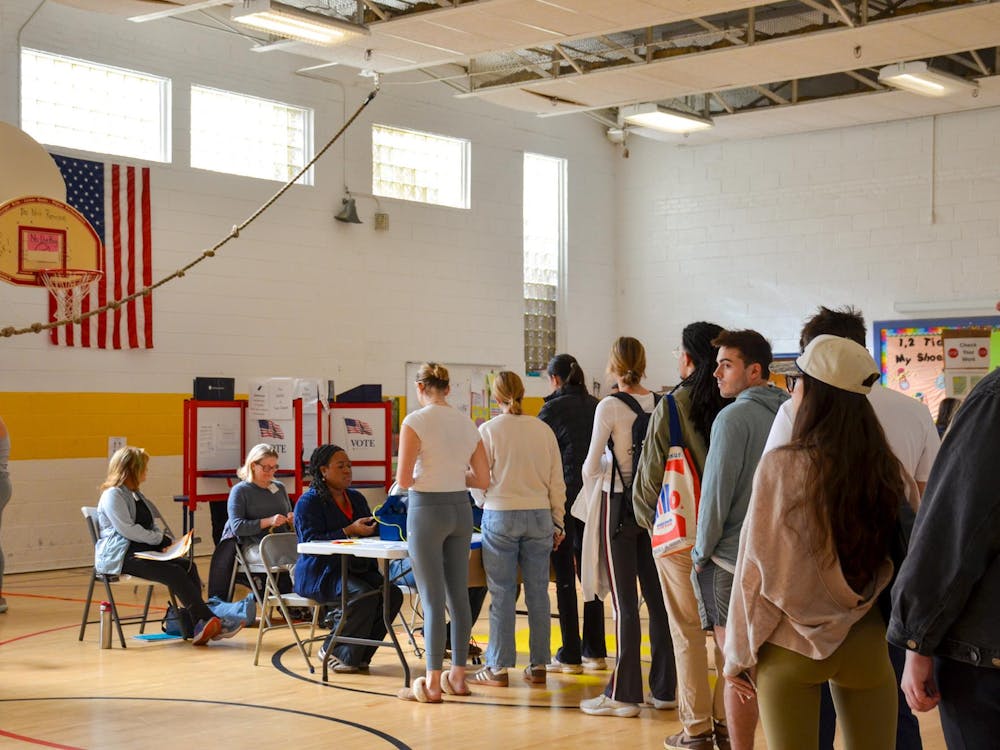Though some students may believe the practice commonly described as “Facebook stalking” is limited to their own generation or potential employers, a Kaplan survey has found that social networking profiles are also sometimes reviewed by undergraduate and graduate schools’ admissions offices.
Ten percent of the 320 undergraduate admissions officers in Kaplan Test Prep and Admissions’ survey reported they had looked at the profiles of applicants to help them make decisions about applicants. The rates for their counterparts in business, medical and law schools were 9, 14 and 15 percent, respectively.
The survey involved one admissions officer at 320 of the top 500 colleges during July and August, according to Glen Stohr, Kaplan director of pre-law programs.
Stohr noted that there may be some significance in the higher rate of monitoring by law school admissions officers.
“I think one of the reasons you see more of this for law schools is that they almost never do face-to-face interviews, like [medical] schools and MBA programs,” Stohr said. “The other side of it is that in the legal profession, as you’re getting ready to pass the bar, your character is evaluated rigorously by the bar association.”
Officials at both the University’s Office of Undergraduate Admissions and Office of Law School Admissions said their officers do not actively search through social networking Web sites.
“It’s very rare that we would have the time to look at something like that,” College Admissions Assoc. Dean Greg Roberts said.
Moreover, Roberts said, his office does not put much stock in those sites because he believes many students tend to exaggerate on their personal Web sites.
“There are some things that are alarming, certainly, but we wouldn’t take them at face value,” Roberts said. “We would go to the student or school first, but in the end, we want good students and good people, so you never know if it could make a difference.”
Jason Trujillo, senior assistant dean for admissions and financial aid at the Law School, said his committee does not actively monitor students’ social networking profiles for information contradicting what is in their applications. He added, however, that the practice will not necessarily be ruled out in the future.
“I would advise students to be careful about anything that they put online,” Trujillo said.
Regardless of the policies of individual institutions, however, the potential monitoring of Facebook and MySpace profiles by graduate schools proves to be an issue of concern to University students, some of whom consider this practice an invasion of privacy.
“The use of Facebook and MySpace profiles to determine the outcome of admissions to graduate school is an unfair practice,” first-year College student Robert Denney said. “But because the information is publicly posted online, they can use it.”
Nevertheless, such information should not be used to rule out a potential applicant, Denney added.
Fourth-year College student Tracee James also expressed some discomfort with the practice.
“I think that graduate schools’ use of Facebook profiles, if they can get access to them, could be an invasion of privacy,” James said.
This type of monitoring could be helpful to those whose profiles “reflected qualities and characteristics that were not expanded upon in their application,” she said, but harmful to those whose profiles portrayed an incomplete picture of the applicant or reflected an undesirable trait such as extreme dishonesty.
“Overall, it really brings up the question of how Facebook users use their profiles,” James said.
The issue of honesty in particular was, Stohr said, one of the most important factors for those law schools who had monitored applicants’ online profiles during their evaluations.
“Law schools understand that young people make bad decisions at times, but ... that doesn’t make you a bad character,” Stohr said.
Stohr said 52 percent of law school admissions officers who had monitored social networking profiles said what they saw had negatively impacted the applicants’ chances of admission, but noted that other factors remain much more important in the admissions process.
“Seventy percent of law school admissions officers said that the LSAT is the single most important factor in evaluating an applicant’s admission to law school,” Stohr said. “Social networking at this stage is so new and has grown so explosively that it’s sort of like the Wild Wild West for admissions, and it’s not likely to do a lot to get you in, but it could be something that gets you out.”






